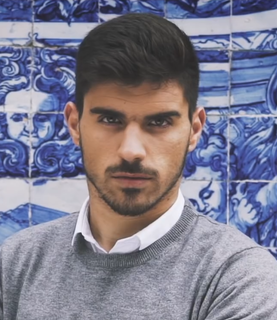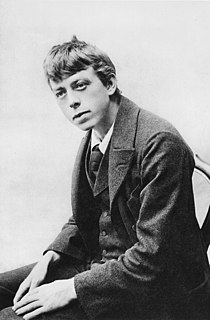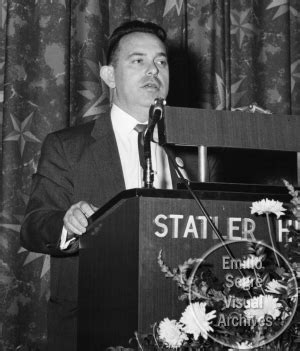A Quote by Ruben Neves
You can't think about what you're going to do in the future until you've done things in the present.
Related Quotes
We human beings have enormous difficulty in focusing on the present; we always thinking about what we did, about how we could have done it better.... or else we think about the future, about what we're going to do.... But at this precise moment, you also realize that you can change your future by bringing the past into the present. Past and future only exist in our mind. The present moment, though, is outside of time, it's Eternity.... It isn't what you did in the past the will affect the present. It's what you do in the present that will redeem the past and thereby change the future.
There are two kinds of people: one who goes on thinking about the future, not bothering about the present at all. That future is not going to come, that future is just a fool's imagination. I don't think about the future. I am a totally different kind of person. I don't think about the future at all, it is irrelevant.
Try to find the real tense of the report you are reading: Was it done, is it being done, or is something to be done? Reports are now written in four tenses: past tense, present tense, future tense, and pretense. Watch for novel uses of CONGRAM (CONtractor GRAMmer), defined by the past imperfect, the present insufficient, and the future absolutely perfect.
Psychoanalysts are fond of pointing out that the past is alive in the present. But the future is alive in the present too. The future is not some place we’re going to, but an idea in our mind now. It is something we’re creating, that in turn creates us. The future is a fantasy that shapes our present.
Marriage is an effort to legalize love. It is out of fear. It is thinking about the future, about the tomorrows. Man always thinks of the past and the future, and because of this constant thinking about past and future, he destroys the present. And the present is the only reality there is. One has to live in the present. The past has to die and has to be allowed to die.
If you separate from . . . everything you have done in the past, everything that disturbs you about the future . . . and apply yourself to living the life that you are living-that is to say, the present-you can live all the time that remains to you until your death in calm, benevolence, and serenity.
Man can only be certain about the present moment. But is that quite true either? Can he really know the present? Is he in a position to make any judgment about it? Certainly not. For how can a person with no knowledge of the future understand the meaning of the present? If we do not know what future the present is leading us toward, how can we say whether this present is good or bad, whether it deserves our concurrence, or our suspicion, or our hatred?





































